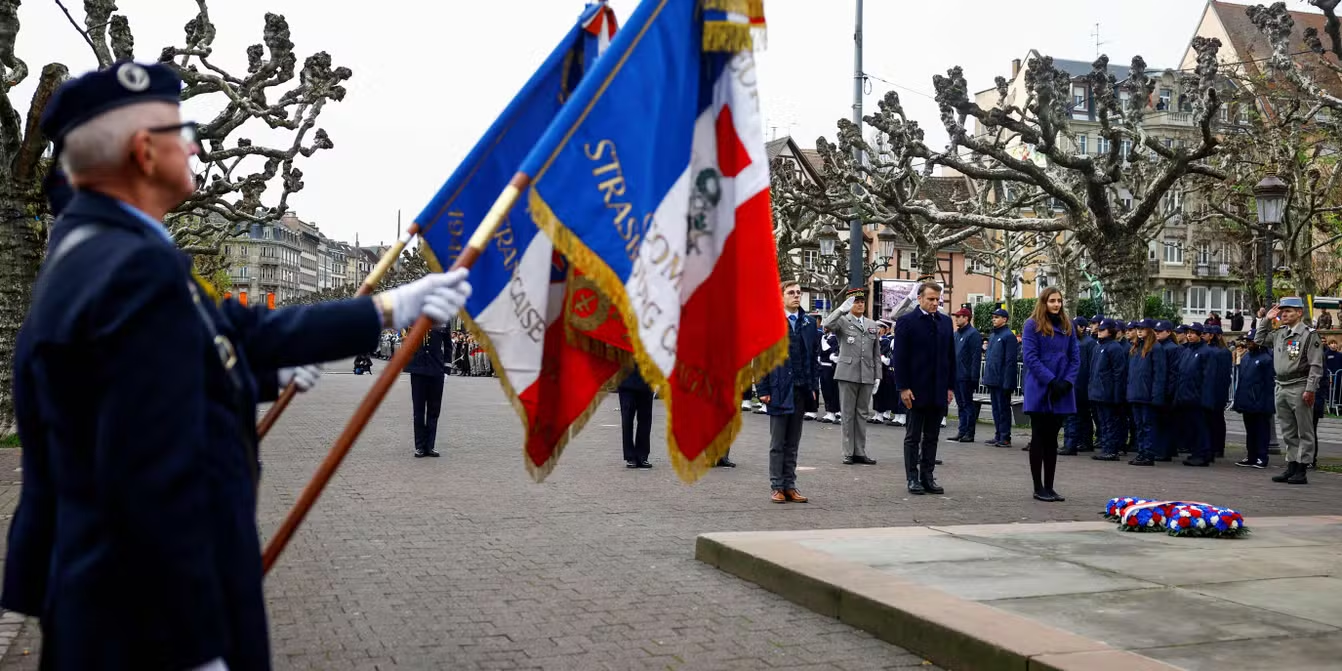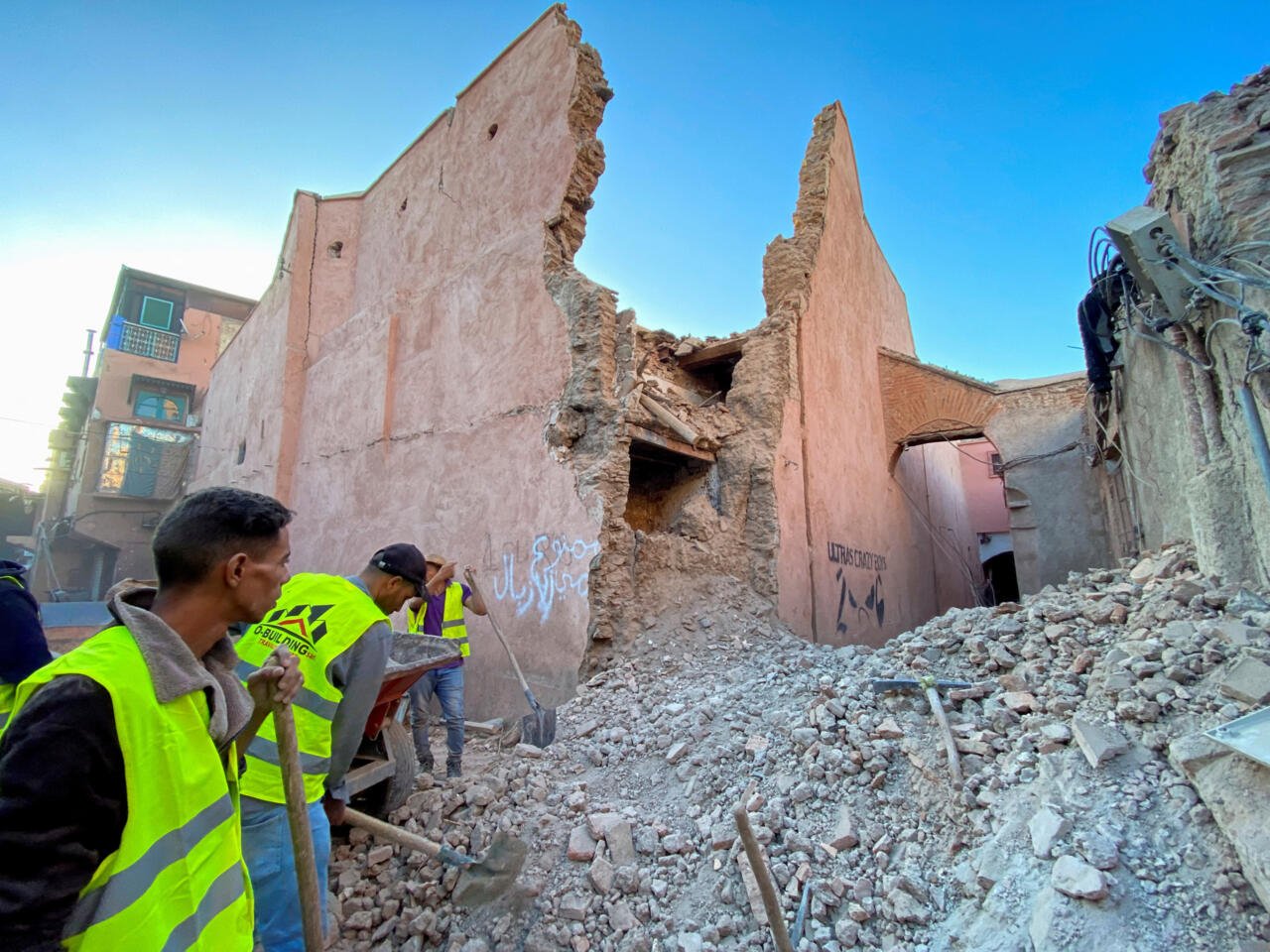French President Emmanuel Macron marked the 80th anniversary of Free French troops liberating the eastern city of Strasbourg from Nazi occupation, calling for broader recognition of overlooked victims of World War II, including those forcibly conscripted into the German army.
The commemoration, held on Saturday, featured a military ceremony in central Strasbourg at Broglie Square. Macron paid tribute to General Philippe Leclerc, who led Free French forces into the city on November 23, 1944, signaling a pivotal moment in the Allied push to free France from Nazi control.
During the ceremony, Macron acknowledged the often-overlooked suffering of the region’s many conscripts, some of whom were forced to serve in the German army during the war. Among them were the “Malgré-nous” — tens of thousands of Alsatian men who were coerced into fighting for Germany against their will. Macron called for the recognition of their tragic experiences, saying, “This tragedy must be named, recognized, and taught.”
Veteran Roger Le Neures, now 101, recalled the historic moment when the French flag was raised over Strasbourg’s cathedral, symbolizing the victory of freedom over Nazi tyranny. “When we knew the flag was up on the cathedral, we had reached our objective — freedom, freeing Alsace,” Le Neures said, reflecting on the emotional significance of the moment.
The president also visited the Natzweiler-Struthof concentration camp, located in the region, where thousands of inmates were tortured, killed, or disappeared. Macron emphasized the brutal history of the camp and highlighted the torment faced by the forced conscripts, many of whom have not received the recognition they deserve.
In his speech, Macron announced that the renowned scholar and Resistance fighter Marc Bloch, who was tortured and executed by the Gestapo in 1944, would be reburied at the Panthéon, France’s national monument to its greatest figures. Bloch, a historian whose posthumous work L’Etrange Défaite critiqued France’s failure to prepare for war, was hailed for his intellectual contributions to understanding France’s complex WWII legacy.
The announcement was met with emotional praise from Bloch’s family. His great-granddaughter expressed gratitude for the honor, though the family requested that far-right figures be excluded from the ceremony, citing concerns about political divisions surrounding the commemoration.
Macron’s remarks, centered on remembering the often-forgotten victims of WWII, were a call to ensure that all aspects of France’s wartime history are acknowledged, particularly those whose suffering has long been ignored.



